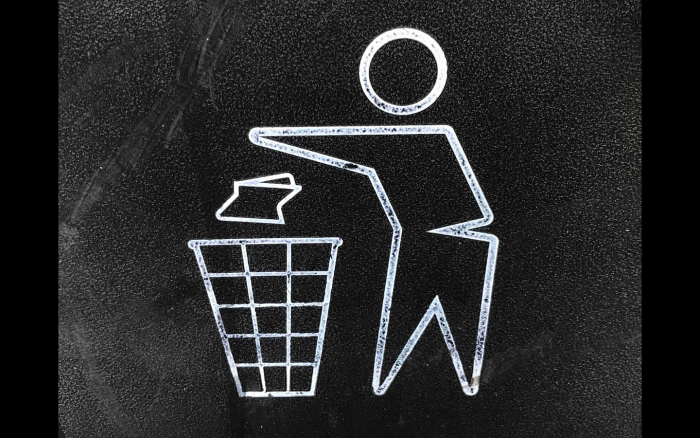My son Dylan has always been the recycling commando in our household.
He currently lives in Oakland, California, and somehow still manages to supervise any and all recycling protocols. I have been scolded while FaceTiming for not properly rinsing a plastic container or can to his satisfaction. Any misstep is noted.
I recently caught my husband using soap to wash containers out of fear of reproach (unnecessary, but surely better than the alternative). On a recent visit, I watched in awe of the systems in place in their home. It inspired me to be a bit more conscientious in mine.
I always thought he was being overzealous, but the fact is: if you toss containers into your recycling bin that have a coating of food or liquid, they may not be recycled, and the rest of the load they are being sorted with will be contaminated.
You may as well drive your bins right to the nearest landfill.
“At its heart, recycling is a manufacturing process. When we toss materials into the bin, these are resources such as oil, aluminum, and steel that we don’t have to extract from the earth. In order to make a quality product, we need quality input materials.
If you recycle by putting all of your metal, plastic, and paper into a single bin, you have commingled or mixed recycling. In mixed recycling, all of the materials are sorted at a material recovery facility (MRF – rhymes with smurf). At an MRF, all of the materials are mixed with other materials. If something is half-full of food or water, it will spill onto the other items. This can ruin the quality of the other materials in the bin, such as cardboard and paper.
The wet and food contaminated paper is then destined for a very expensive trip to the landfill instead of a new life.” ~ Department of Ecology
If you embrace recycling as a lifestyle choice, you have committed to being an “Earth Keeper.” If you are not aware of the need to rinse and lightly dry your items, you may have genuine intentions, but you are likely doing more harm than good. The fact is that the earth has limited resources. If we conduct ourselves as if we are entitled to consume every resource it offers, we leave future generations lacking the necessary resources for their time on the planet.
Shouldn’t we leave the world better than we found it? Quite the contrary, we are sucking the very life out of her.
I live in Delray Beach, Florida, and every night, I take my pup Maisey for a walk just before sundown. On Sundays, all of my neighbors have placed their bins on the curb for Monday morning pickup. It astounds me how some bins are clean as a whistle, and others look like the table was cleared and tossed directly into the bin without so much as a thought about what that might do to the rest of the recycled items being picked up.
This should irritate you.
Here you are, conscientious enough to follow guidelines, and they are voiding your efforts completely. I am being generous of spirit in assuming that people don’t know better. (I know I didn’t know in the beginning.) And I know that some people just can’t be bothered to make an effort to care for our Mother Earth.
I felt called to share this one tip that could change the face of recycling: when you toss items into your recycling bin, think about what your actions put into motion.
Are you part of the solution, recycling mostly clean and dry items, or are you part of the problem?
With limited effort and increased awareness, we can make the impact of recycling our gift to the future. Here’s a mantra that inspires me to clean up my act every week:
“We do not inherit the earth from our ancestors; we borrow it from our children.” ~ Unknown









Read 10 comments and reply